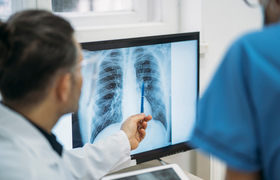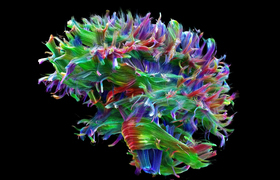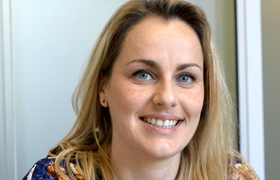UCT researchers awarded for shaping the future of disease prevention
25 August 2025 | Story Sarah Marriott. Photo Supplied. Read time 9 min.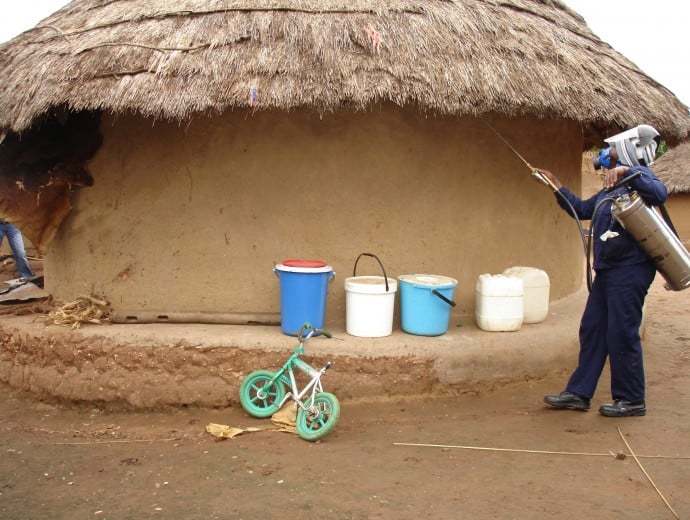
A significant milestone in research funding has been achieved with Dr Tessa Moll named as the first University of Cape Town (UCT) recipient of the prestigious Wellcome Early-Career Award. In addition, a team researching TB immunopathology has secured only the second Wellcome Trust Discovery Award made to a UCT-based researcher/team.
In this breakthrough achievement, Dr Moll joins only a handful of South Africans who have received this highly competitive grant. The expectation is that the Wellcome Early-Career Award recipient’s work should deliver shifts in understanding that could improve human life, health, and wellbeing. The goal is that by the end of the award the researcher will be ready to lead their own independent research programme.
Rethinking responses to the uneven burdens of chemical exposure
Using qualitative and ethnographic methods, Moll’s research explores the intersection of reproduction, medical technology and environmental health in South Africa.
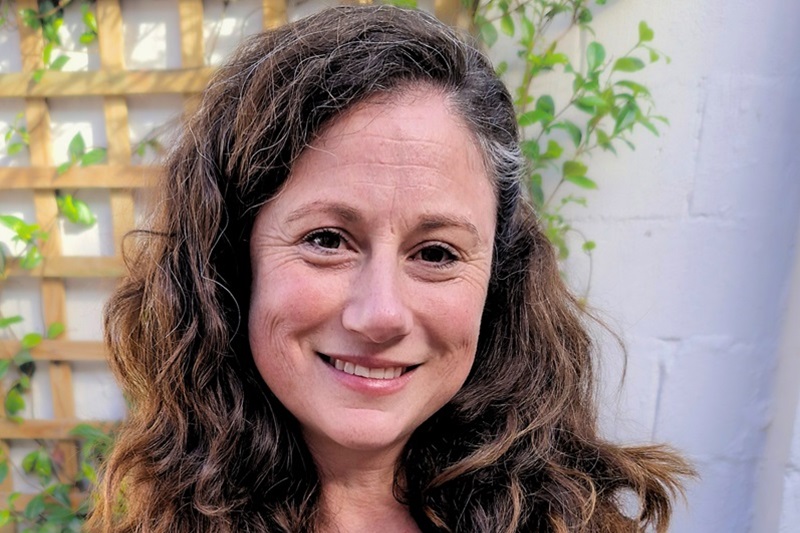
“I’m so thrilled and grateful to receive this award,” Moll said. “But while it’s framed as an individual award, the project I’m engaged in is inherently collaborative, bringing together affected communities, scientists, and policymakers to explore the complex realities of living with chemical exposure. Together, we’ll ask how exposure is made legible and what gets lost in translation between data and experience,” she said.
The project, based at the Department of Anthropology where Moll received her PhD, is part of her broader research agenda that explores how technologies and knowledges shape the ways life is made and sustained –especially in contexts marked by inequality.
Moll’s collaborators include co-PIs Dr Jonathan Chevrier at McGill University, Canada and Dr Riana Bornman at University of Pretoria. The work is looking at the birth cohort research group Venda Health Examination of Mothers, Babies & their Environment (VHEMBE). This programme is the first cohort study to investigate impacts of exposure to indoor residual spraying insecticides and air pollution on child health in Africa.
Exploring the alterlives of chemically-driven health interventions
Insecticides such as dichlorodiphenyltrichloroethane (DDT) are the mainstay of global health interventions to address vector-borne illnesses like malaria. Increasingly used in indoor residual spraying programmes across Southern Africa, DDT remains controversial for its adverse effects on human and environmental health. Moll’s project DDT Relations: Tracing chemical alterlife in South Africa malaria control, aims to contribute new knowledge on chemically driven global health interventions as well as providing novel theorising on accountability.
She explained that this Wellcome award will provide vital support for research exploring the alterlives of chemically-driven health interventions. ‘Alterlife’ is the idea that our bodies and environments are already transformed through chemical exposure and that life itself is shaped not just individually, but collectively, across generations by these shared toxic exposures.
“This award allows us to conduct multi-sited ethnographic research and develop interdisciplinary collaboration with scientists studying the biological effects of DDT,” she said. “The goal is not only to produce new knowledge but to rethink how we respond to the uneven burdens of chemical exposure and to centre the voices of those most affected in shaping more just interventions.”
[The] project… is inherently collaborative, bringing together affected communities, scientists, and policymakers.
Remarking on the rigorous Wellcome proposal and application process, Moll expressed appreciation to her mentor Professor Fiona Ross in the Department of Anthropology, and the valuable support of the dedicated team in the Research Office-based International Grants Hub (IGH).
Jacqueline Sylvester, International Grants Coordinator at the IGH was quick in turn to praise Moll’s dedication and intellectual leadership. She echoed that “it takes a team effort to secure a major award like this”. Sylvester credited collaborations with the Humanities Faculty finance group and consultants Camilla Thorogood and Mignonne Breier, as well as academic mentor Bastienne Klein. “We are extremely proud of Dr Moll’s achievement and of the role our team played in supporting this successful outcome,” she said.
Informing the rational design of TB vaccines and therapeutic strategies
The Wellcome Trust Discovery award provides funding for already established researchers and teams seeking to pursue bold and creative research ideas to deliver significant shifts in understanding related to human life, health and wellbeing. Led by UCT academics Dr Virginie Rozot and Professor Thomas Scriba, this team leverages extensive experience in human tuberculosis (TB) pathology and autopsy programs, and surgical cohorts at UCT and the African Health Research Institute (AHRI).
Dr Rozot, a senior research officer at the South African TB Vaccine Initiative (SATVI), is an infectious disease clinical immunologist and biotechnology engineer. Professor Scriba is deputy director of Immunology at SATVI, and a member of the Institute of Infectious Disease and Molecular Medicine. He has led numerous studies aimed at identification and validation of human immune correlates of risk of TB.
The project team includes fellow UCT researchers Professor Digby Warner, Professorial Director of IDM, leading the microbiology aspect, and Dr Laura Taylor, a specialist Forensic Pathologist. External collaborators include:
- Professor Threnesan Naidoo, Africa Health Research Institute, South Africa
- Dr Alasdair Leslie, Africa Health Research Institute and University College London, United Kingdom
- Professor Adrie Steyn, Africa Health Research Institute and University of Alabama, United States
- Professor Douglas Lauffenburger, Massachusetts Institute of Technology, United States
Each year TB claims 1.3 million lives, and more than 10 million people develop the disease. An efficacious vaccine is needed to improve TB control, however, a poor understanding of host-pathogen interactions and a lack of human immune correlates of protection hinder rational development of interventions. This knowledge gap is primarily due to difficulties inherent in studying a disease caused by a pathogen that can only survive in humans residing in inaccessible anatomical sites.
Titled TB immunopathology across the M. tuberculosis infection and TB disease spectrum, this project seeks to study host-pathogen interactions in human tissues to inform the rational design of vaccines and therapeutic strategies by generating new knowledge aimed at deepening understanding of protective immunity. By leveraging autopsies on decedents with incidental Mycobacterium tuberculosis (M. tb) infection or tuberculosis pathology, the team will be working with post-mortem samples from people who have passed from unnatural causes of death.
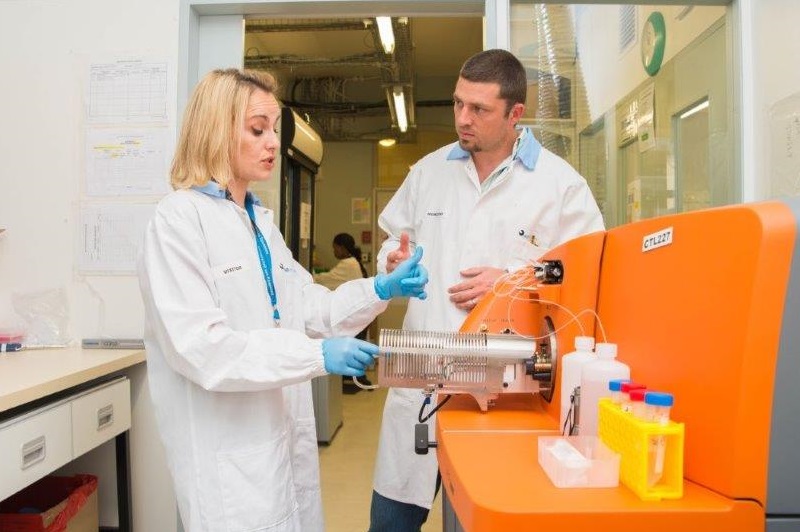
Short post mortem autopsies mean not only that the quality of blood and the tissues collected are maintained, but they can be processed in the same way as with living human samples or biopsies.
"What’s key here is that we are examining tissue from individuals who died of non-TB causes,” Rozot explained. “I like Tom’s analogy of a car crash... If you arrive on the scene after the incident, you won’t really know if the wreckage you see is a result of the crash or if it's what actually caused the accident.”
When examining tissue from lungs of people that are really ill, it can be challenging to figure out what happened before. “The difference is that we will be able to work out how the disease has progressed by accessing tissue from people who were infected but not sick,” she said, “allowing us to link to protective immune responses.”
One of the major advances of this specific project is the community engagement. “It’s a violent context, and when we started, we saw that it would be really difficult to recruit and obtain consent from the next of kin, as the families are grieving,” Rozot said. “But within this framework we got very good feedback from the families. Many managed to find some comfort in the fact that these unexpected, traumatic deaths could lead to something else.”
Figuring out smarter ways to design vaccines and treatments
“While less evocative than Virginie's description of the human aspect,” Scriba added, “what is also exciting for me is that we've been on a quest to identify what the immune responses are that we need to provoke or induce to protect against TB. It's something that the world is waiting for because it's very difficult to do for TB.”
Scriba explained that while there are animal models, they don't really reflect what happens in humans sufficiently because TB is a human disease. “While we've been working on this for a long time, it’s typically not ethically sound and anyway very difficult to biopsy the lungs. So we typically access and study blood from healthy, living individuals.”
By applying cutting-edge molecular microbiology and immunological profiling, the team will describe the tissue-level spectrum of M. tb infection and tuberculosis disease in pulmonary tissue, determine bacillary presence and viability, and identify the immunological mechanisms that control M. tb in humans.
The Wellcome award offers an opportunity that will allow them, for the first time, to investigate these immune correlates of protection, the immune responses that are associated with protective immunity against the TB pathogen, and to discover them in the place where it most matters – in the lungs and lymph nodes.
“We've been on a quest… It's something that the world is waiting for.”
The pioneering research efforts of both Moll and the SATVI team, via their distinctive research topics, are poised to yield significant and wide-ranging impacts. These groundbreaking projects will play a pivotal role in shaping the future of health sciences and disease prevention.
 This work is licensed under a Creative Commons Attribution-NoDerivatives 4.0 International License.
This work is licensed under a Creative Commons Attribution-NoDerivatives 4.0 International License.
Please view the republishing articles page for more information.








